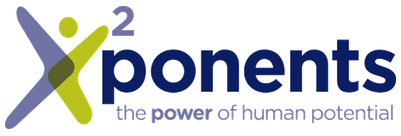Apr 15, 2015 10:01:48 AM
It’s easy to know intuitively if you trust someone or not, but what behaviors lead to that decision? If trust is so commonly described as a quality that must be earned what happens between the time of introduction and the mystical moment when a person proves their mettle?
Excerpt from The Cycle of Transformation by Deb Siverson (that’s me!)
If you‘ve read my book, you know that part of my own leadership journey has circled back many times to the topic of trust. This is because both sides of the trust-coin, trusting myself and trusting others, are elements that I have personally struggled with. Through those struggles I sought to understand more about trust and its impact on me and workplace relationships.
As I researched the topic of trust I came upon the work of Duane C. Tway, who holds a doctorate in Organizational Development with an emphasis on trust in organizations. In his dissertation, “A Construct of Trust”, he describes trust as, the state of readiness for unguarded interaction with someone or something. His model encompasses three perspectives on trust that influence the perception of whether we should trust or not.
Capacity for Trusting: Our total life experiences impact our capacity and willingness to risk trusting others. One of my colleagues recently wrote about her mother and the wonderful role model she was in a blog post. In Arianna Huffington’s book “Thrive”, she does the same, sharing beautiful words of wisdom from her mother. This was not my experience. My mother was married four times, and as the oldest, I tried and failed to protect my younger brothers and sisters from the wrath of the alcoholic step-fathers that we encountered. I saw bruised choke marks around the neck of my ten year old sister, who weeks later ended up with a concussion, in a shelter for battered women with my mother. Later she would tell the story of my mother catching her as she attempted to run away and delivering her into the hands of the man who would abuse her. I did not trust my mother, but for years what was even worse is that I didn’t trust myself. I felt deep shame for not calling social services, but I didn’t trust them with the truth of what was happening in my family. This story reminds me that trust is hard-won for most of us. There are many stories like mine, and we carry those stories with us into the workplace, unsure of who we can trust, when we can trust them, and to what extent. Leaders must never lose sight that their walk with integrity is not lost on us. We want to trust in something. We watch for broken and kept promises.
Perception of Competence: How we perceive our own ability and the ability of others to address the current situation competently. In continuing with my own story, earlier in my career I had something to prove: that I was good enough. I attempted to prove it by being extremely competent at everything I did. I lived in fear that “they” would discover that I was incompetent, a sham. This was clearly a confidence issue and the cost of my weakened self-perception is difficult to calculate. There is a price to be paid for not trusting oneself. But I didn’t stop there, I was also wary and cautious about trusting others capabilities. Often I would go it alone rather than asking for help, in part because “if you want to be sure it’s done right you must do it yourself.” It was a relief to discover a method for developing authentic trust through the making and keeping of commitments. Having open dialog about shared goals, roles, rules, and how to recover when expectations weren’t met taught me how to relax and trust the process, and in turn myself and others.
Perception of Intentions: The extent to which one believes that actions, words, direction, mission, or decision are spurred by mutually-serving rather than self-serving motives. I went through a period of making myself wrong for not easily trusting. Today I question intentions from a healthier place. Not everyone is worthy of trust. I would never suggest that we blindly trust another. At the same time I don’t hold the view that trust has to be proven or earned. I choose to start by assuming positive intent, but that does not mean anything goes. I believe that we must be discerning in how we place ourselves in the hands of another. Blind trust can get people hurt, or worse. I learned early that some people have self-serving motives. And I have learned later that many people want what is best for the team, the community, the world. I can’t place the demons of my childhood on the saints I meet today. With my eyes wide-open, I know they both exist, and I can discern between the two.
Each of us is responsible for managing our internal landscape and perceptions about trust. The workplace is full of stories of children like me who first learned of trust by having it betrayed. There is a method, a path to developing authentic trust, if all parties are willing to walk in that direction together. It isn’t easy, but it is deeply rewarding. It is the path to unguarded interactions. It is the practice of learning how to be always ready to engage in a different kind of conversation.






